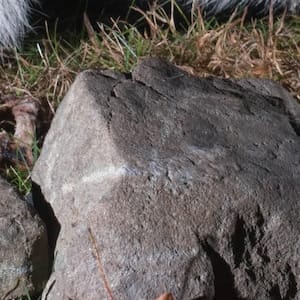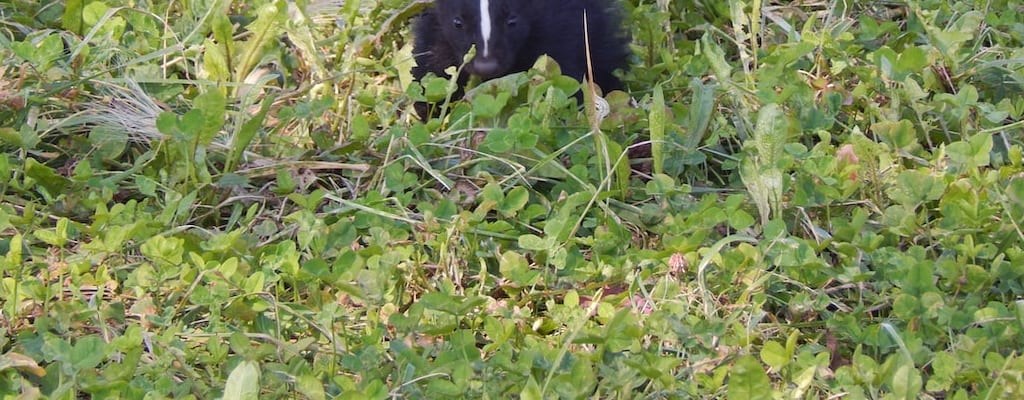skunk at a garden party: Idiom Meaning and Origin
What does ‘skunk at a garden party’ mean?
The idiom "skunk at a garden party" refers to someone who is unwelcome or unpleasant in a social gathering, causing discomfort or ruining the overall enjoyment of the event.

Idiom Explorer
The idiom "square peg in a round hole" is used to describe a person or thing that is unsuitable or does not fit well in a particular situation or environment.
The idiom "spoil someone rotten" means to excessively pamper or indulge someone, often resulting in them becoming spoiled or having a sense of entitlement.
The idiom "spit on" is typically used to convey the idea of disrespect or disregard towards someone or something. It suggests a lack of value or importance placed on someone or something, often accompanied by a dismissive or contemptuous attitude.
The idiom "spill one's seed" refers to wasting or losing something valuable or important, typically in a frivolous or careless manner.
The idiom "sour grapes" refers to a negative attitude or criticism towards something that is unattainable or unappealing to the person. It implies that the person downplays or devalues what they cannot have or achieve.
The idiom "sore-thumbish" refers to something or someone that stands out noticeably from the rest of its surroundings, attracting attention and creating a sense of discomfort or unease.
Uninvited Intruder
The idiom "skunk at a garden party" is an American expression that describes someone or something that ruins an otherwise enjoyable event or situation. This phrase is often used to denote an unwelcome or unpleasant person who spoils the atmosphere of a social gathering or festive occasion. It brings to mind the image of a skunk infiltrating a pleasant outdoor gathering, such as a garden party, and ruining the atmosphere.
The exact origins of this idiom are unclear, but it can be traced back to the early 20th century in American English. The word "skunk" has been used metaphorically since the mid-19th century to describe something disagreeable or offensive. Adding the phrase "at a garden party" emphasizes the contrast between the skunk's unwelcome presence and the otherwise pleasant and festive atmosphere of a social gathering.
Idioms like "skunk at a garden party" are concise and vivid ways to convey complex ideas or emotions. In this case, the idiom effectively conveys the notion of something or someone that disrupts or spoils a joyful or harmonious situation. The image of a skunk at a garden party elicits a visceral reaction, as the strong and unpleasant odor associated with skunks is universally recognized as undesirable.
This idiom can be used in various contexts, both literal and figurative, to describe situations where someone or something has a negative impact on a pleasurable or lighthearted experience. It can express disappointment or annoyance with an individual who ruins the fun or creates tension at a social event. It can also describe an unexpected turn of events or an unwelcome circumstance that detracts from an enjoyable situation.
Another related idiom is "skeleton at the feast." This phrase is used to describe someone or something that spoils an otherwise joyful or celebratory occasion. Just like the skunk at a garden party, a skeleton at the feast brings a negative or uncomfortable element to an otherwise pleasant gathering.
Similarly, the idiom "ghost at the feast" can be used to describe someone or something that ruins the atmosphere of a festive occasion. It implies a presence that is unwelcome or brings a sense of unease to an otherwise enjoyable event.
The idiom "no fun at parties" is yet another way to describe someone who is unpleasant or not enjoyable to be around in social situations. This phrase emphasizes the individual's lack of ability to contribute positively to the atmosphere of a party or gathering.
Lastly, the idiom "turd in the punchbowl" is a colorful expression that signifies something or someone that ruins the mood or enjoyment of a social event. The use of this idiom implies a strong level of disgust and distaste for the individual or circumstance that detracts from the overall enjoyment of the party.
While the idiom "skunk at a garden party" is most commonly associated with the English language, variations of this concept can be found in other cultures and languages. The specific idiomatic expressions may differ, but the underlying idea of someone or something spoiling an otherwise pleasant occasion remains universal.
Idioms like "skunk at a garden party" are valuable linguistic tools that allow us to convey complex emotions or concepts in a concise and vivid manner. The image of a skunk infiltrating a garden party effectively captures the idea of an unwelcome presence that ruins the atmosphere of a joyful event. This idiom, along with related expressions like "skeleton at the feast," "ghost at the feast," "no fun at parties," and "turd in the punchbowl," provides a colorful and expressive way to describe individuals or circumstances that detract from the overall enjoyment of a social gathering.
Example usage
Examples of how the idiom "skunk at a garden party" can be used in a sentence:
- Her loud and rude behavior made her the skunk at the garden party.
- When she arrived wearing a torn and dirty outfit, she was like a skunk at a garden party.
- The negative comments he made during the event made him feel like a skunk at a garden party.
More "Embarrassment" idioms



